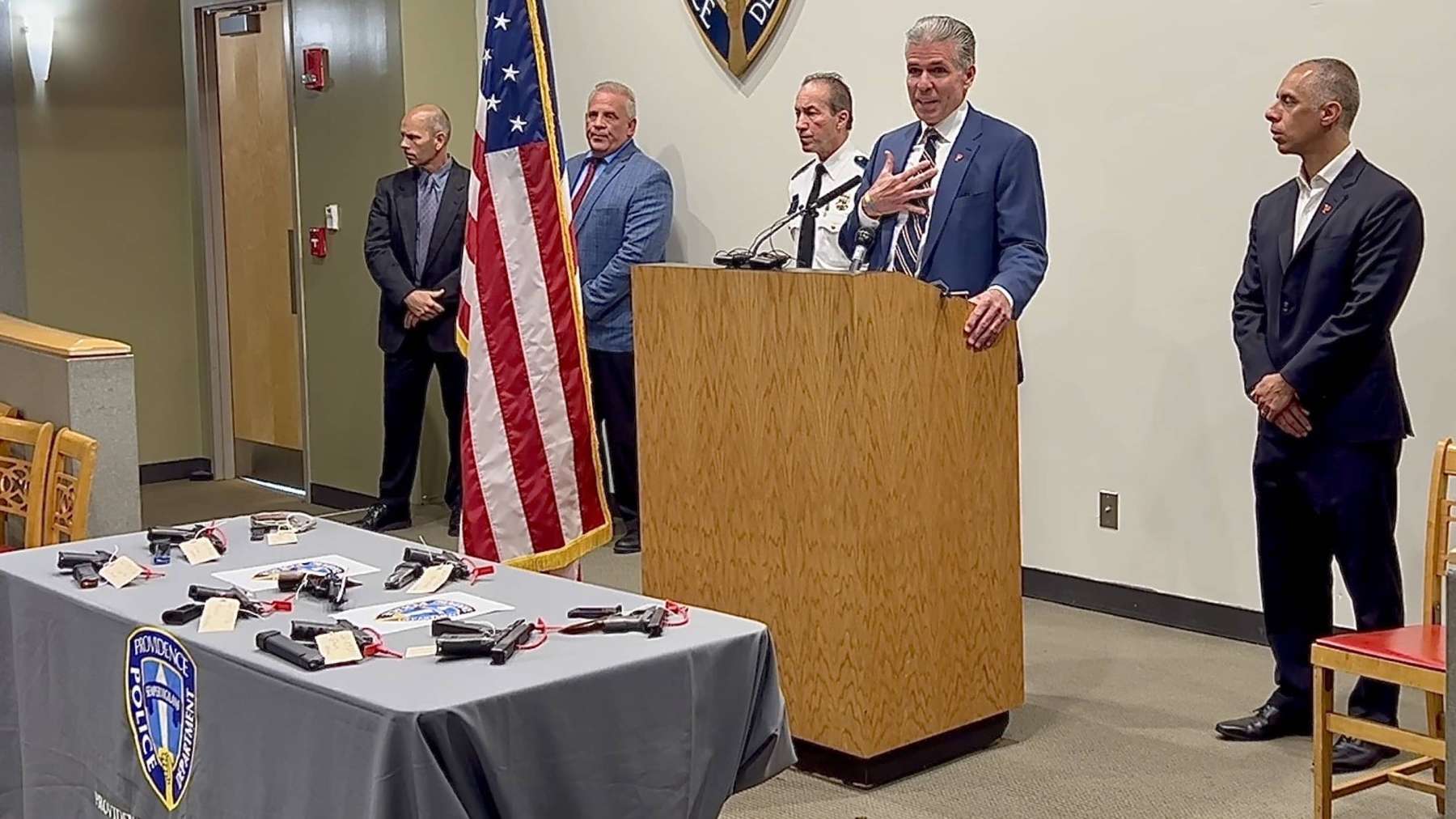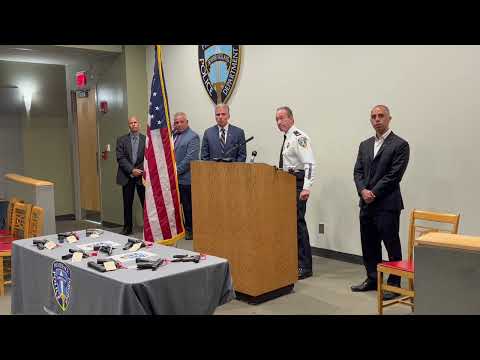Providence Police to install License Plate Readers without public or legislative input
There are major privacy concerns with the use of LPRs, noted the ACLU in a letter to members of the Providence City Council on March 17, shortly after it was first learned that the city was investigating using the technology. Right now, the policy regarding the use of LPRs is being created by the police themselves, most likely in partnership with Flock Safety. To date there have been no reports of legislative or public involvement with the rule making process in Providence.
May 24, 2022, 10:04 am
By Steve Ahlquist
As part of a press conference announcing the confiscation of nine handguns by the Providence Police Department over the last weekend, Mayor Jorge Elorza announced that the city would be engaging with Flock Safety to install around two dozen License Plate Readers (LPRs) throughout the city as part of a pilot program.
“We’re here to announce a new technology and a new tool that we’ve been investigating for several months now, and that we’re working towards deploying by the end of next month, and that’s license plate readers, commonly known as LPRs,” said Mayor Elorza. “This is the next step in the adoption of new technology by law enforcement here in the City of Providence. As you know, long ago, the city adopted the use of tasers that can be used to subdue a suspect without having to use deadly force. Six or seven years ago, we were the first police department in the state to adopt the use of body worn cameras. There are a couple of police departments in the state that have already instituted the use of license plate readers, and Providence will soon be deploying these as well.
“We’ve consulted with several other jurisdictions and with professionals in the field, and they rave about this technology,” continued the Mayor. “Nationally, about 70% of crimes involve a vehicle. So most people who commit a crime, especially a violent crime, are using a vehicle. What license plate readers allow us to do is to capture license plates of cars that have been involved, but also be notified when that same car pops up somewhere else over the coming weeks. We will be sharing our policy.”
There are major privacy concerns with the use of LPRs, noted the Rhode Island ACLU in a letter to members of the Providence City Council on March 17, shortly after it was first learned that the city was investigating using the technology. Right now, the policy regarding the use of LPRs is being created by the police themselves, most likely in partnership with Flock Safety. To date there have been no reports of legislative or public involvement with the rule making process in Providence.
“There have been concerns raised with respect to civil liberties, so we’re going to be out front and upfront in adopting best practices that have been developed in other jurisdictions and we will let folks know exactly how they’re going to be used so as to prevent and even eliminate those civil liberty concerns,” said Mayor Elorza.
In their letter, the ACLU outlined five major concerns:
- The cameras capture much more than license plate numbers.
- It is almost inevitable that the use of these cameras will expand over time to engage in more, and more intrusive, types of surveillance.
- Separating the history of surveillance in the United States from racial discrimination is impossible because they are inextricably bound.
- Concerns about the normalization of increased surveillance are exemplified by the fact that some police departments have admitted that both they and Flock Safety have begun engaging in private outreach to business to develop a public-private network of these surveillance cameras.
- In the absence of legislatively established limits on their use, the privacy rights of the public remain at the complete discretion of the police department and a private company, which can change their policies at any time.
Uprise RI: What is the process for deciding on the rules for LPR use?
Providence Police Chief Hugh Clements: We will develop a strict policy and go to school on other jurisdictions, both locally and nationally who deployed LPRs. We are still going through that process, but we’ll make sure we’ll have a policy. I can guarantee you, there will be audits on a short basis and the proof will be in the pudding. These will be used for criminal events only.
Uprise RI: The ACLU has criticized Cranston in the past for not having public input and not having legislative input into the final rules. What do you think about that?
Commissioner of Public Safety Steven Paré: All our policies are online. They’re obviously available to anyone that wants to come and look at our policy and also opine and give recommendations. We know it’s really important that we get it right. LPRs are in major cities across the country. We don’t have to reestablish the rules of engagement. We’re going to follow the best practices so people’s concerns about their privacy are protected. This is for crime and connecting vehicles with other crimes we’ve seen in two jurisdictions here in this state. It is a great tool for law enforcement. And we know other major cities in this country have deployed it, and it’s going to have a big impact on our ability to solve crimes going forward.
Mark Reynolds [Providence Journal Reporter]: Are you going to go through an RFP process? How you know who you’re going to work with.
Commissioner Paré: When we procure this service, we’ll go through the procurement [process]. We have a pilot program right now that we’re trying to launch in the next three to four weeks. It’s not costing the city anything. It’s a pilot program. It’s for 12 months, but it’s limited in the number of devices that they’re going to put in the city. As we go through that process and see the – I believe – the absolute positive effect on public safety, then we’ll be seeking a permanent agreement where the city engages in a contract. But that is in the future.
Mark Reynolds: How many cameras are we talking about?
Commissioner Paré: You can put as many cameras as you want to pay for, obviously, but in the beginning it’ll be a couple dozen devices that read plates. But that is no cost to the city and it’s for 12 months.







